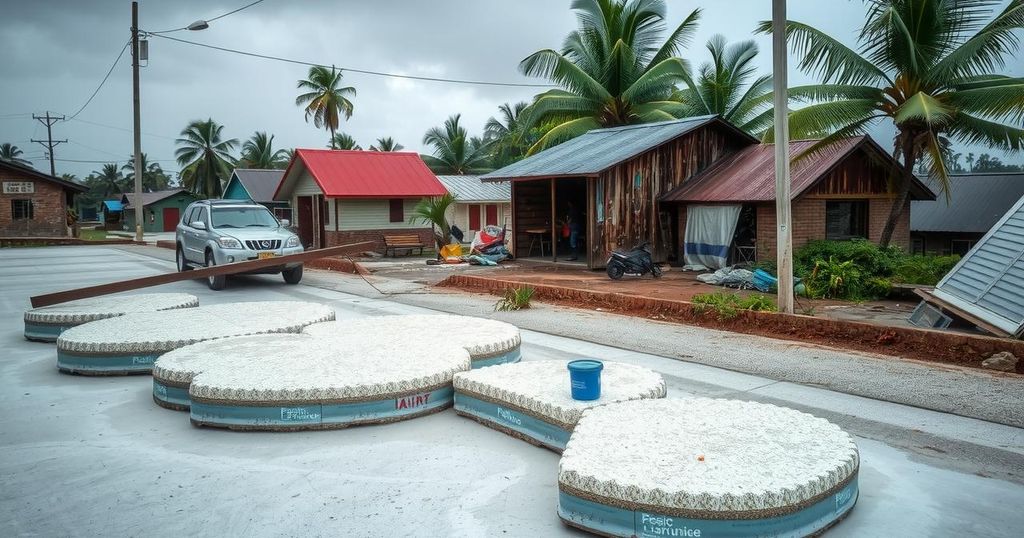Cyclone Chido Devastates Mozambique, Affecting Over 90,000 Children

Cyclone Chido has severely impacted Cabo Delgado in Mozambique, affecting over 90,000 children and destroying thousands of homes. The cyclone exacerbates the ongoing humanitarian crisis, with significant destruction of schools and healthcare facilities. UNICEF is calling for immediate support as the region faces heightened vulnerabilities due to climate change and conflict.
Cyclone Chido has inflicted severe damage on Cabo Delgado province in northern Mozambique, impacting over 90,000 children and destroying approximately 35,000 homes upon making landfall on December 17, 2024. The cyclone not only devastated civilian infrastructure but also destroyed 186 classrooms and impacted 20 health facilities. Mary Louise Eagleton, the UNICEF Representative in Mozambique, emphasized the dire situation, stating, “Mozambique is considered one of the most affected countries in the world by climate change, and children were already experiencing several life-threatening emergencies before Cyclone Chido.”
The cyclone’s effects extend beyond initial destruction; Cabo Delgado has been grappling with seven years of conflict that has displaced over 1.3 million individuals, primarily women and children. The cyclone also severely impacted Nampula and Niassa provinces, leading to additional power outages affecting over 25,000 families and complicating ongoing efforts to control a cholera outbreak. With nearly 4.8 million people, including 3.4 million children, in need of humanitarian assistance, the region faces significant challenges.
UNICEF and local partners continue to prioritize comprehensive emergency responses despite growing adversities and climate change’s increasing frequency of such disasters. Continued support, including an urgent appeal for $10 million, is required to address the multiple crises triggered by Cyclone Chido and assist vulnerable communities in Mozambique.
The impact of Cyclone Chido in Mozambique underscores the escalating effects of climate change in a region already beset by numerous humanitarian crises. Mozambique is renowned for its vulnerability to climate-related disasters, having suffered from the repercussions of conflict, poverty, and ongoing health emergencies. The combination of extreme weather events, such as Cyclone Chido and previous cyclones like Freddy in 2023, has exacerbated existing inequalities and hindered recovery efforts for many families.
In conclusion, Cyclone Chido’s devastation has significantly affected the lives of over 90,000 children and thousands of families in northern Mozambique, leading to widespread destruction and increased humanitarian needs. As the country contends with the compounding effects of climate change and ongoing conflicts, urgent support is necessary to provide critical assistance and resources to those in dire need. Continued collaboration among UNICEF, the government, and various humanitarian organizations is crucial for the recovery and support of affected populations.
Original Source: reliefweb.int







